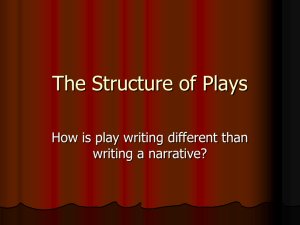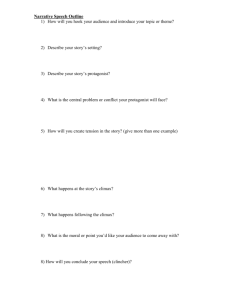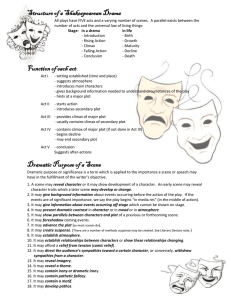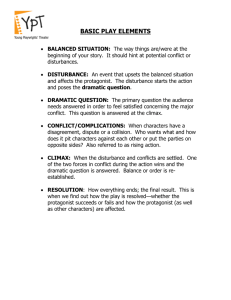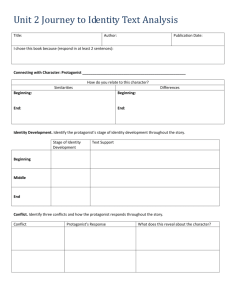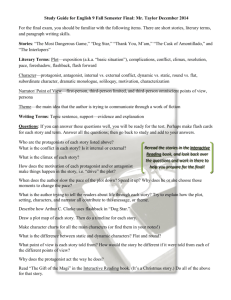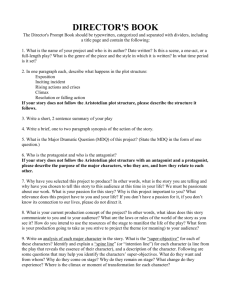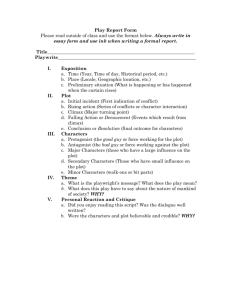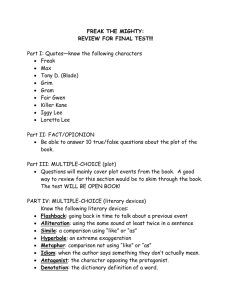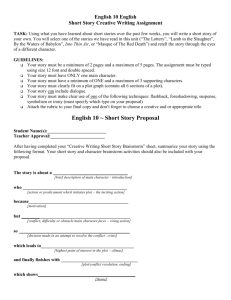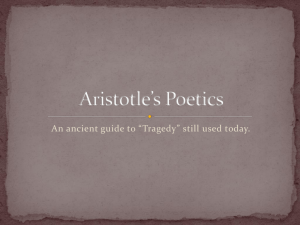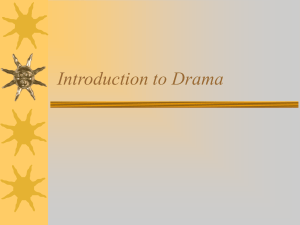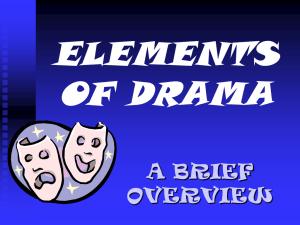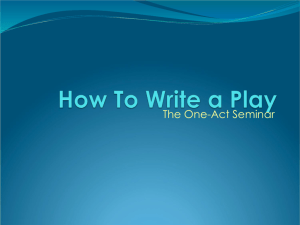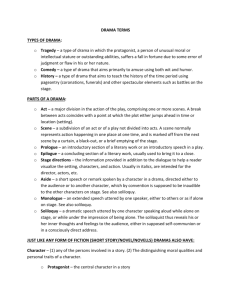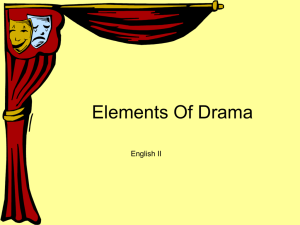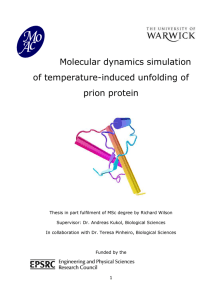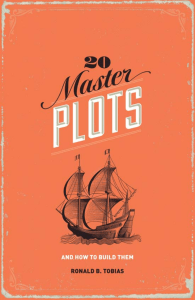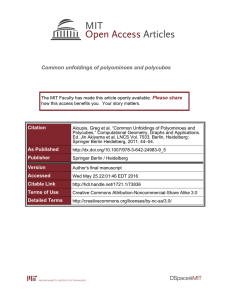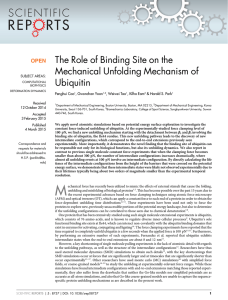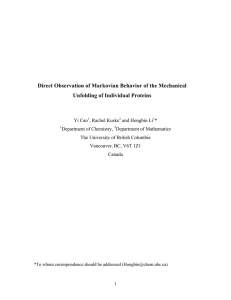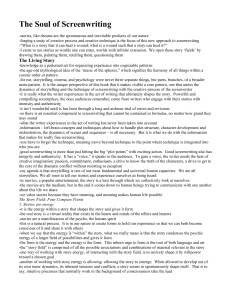File
advertisement
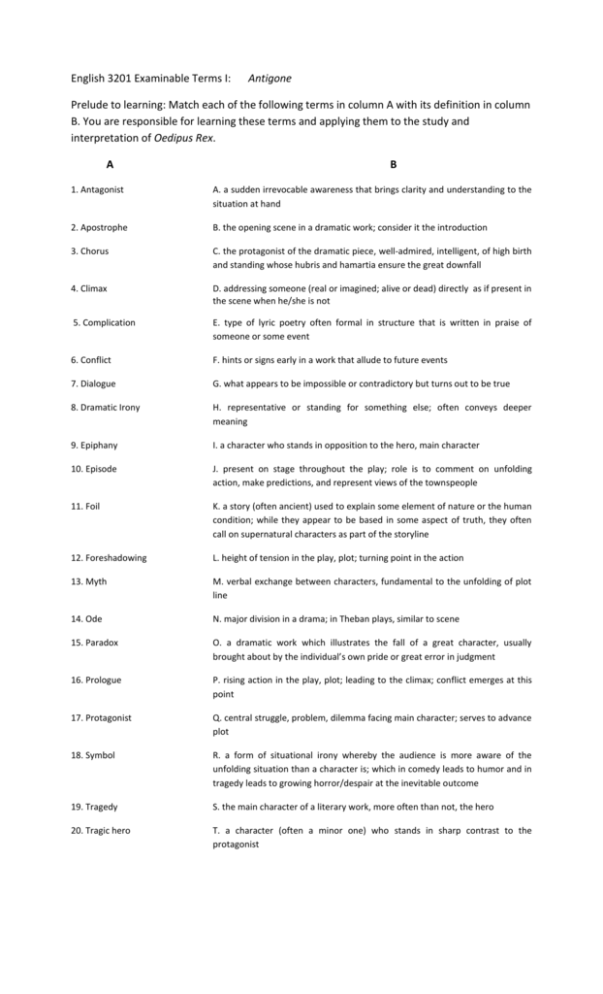
English 3201 Examinable Terms I: Antigone Prelude to learning: Match each of the following terms in column A with its definition in column B. You are responsible for learning these terms and applying them to the study and interpretation of Oedipus Rex. A B 1. Antagonist A. a sudden irrevocable awareness that brings clarity and understanding to the situation at hand 2. Apostrophe B. the opening scene in a dramatic work; consider it the introduction 3. Chorus C. the protagonist of the dramatic piece, well-admired, intelligent, of high birth and standing whose hubris and hamartia ensure the great downfall 4. Climax D. addressing someone (real or imagined; alive or dead) directly as if present in the scene when he/she is not 5. Complication E. type of lyric poetry often formal in structure that is written in praise of someone or some event 6. Conflict F. hints or signs early in a work that allude to future events 7. Dialogue G. what appears to be impossible or contradictory but turns out to be true 8. Dramatic Irony H. representative or standing for something else; often conveys deeper meaning 9. Epiphany I. a character who stands in opposition to the hero, main character 10. Episode J. present on stage throughout the play; role is to comment on unfolding action, make predictions, and represent views of the townspeople 11. Foil K. a story (often ancient) used to explain some element of nature or the human condition; while they appear to be based in some aspect of truth, they often call on supernatural characters as part of the storyline 12. Foreshadowing L. height of tension in the play, plot; turning point in the action 13. Myth M. verbal exchange between characters, fundamental to the unfolding of plot line 14. Ode N. major division in a drama; in Theban plays, similar to scene 15. Paradox O. a dramatic work which illustrates the fall of a great character, usually brought about by the individual’s own pride or great error in judgment 16. Prologue P. rising action in the play, plot; leading to the climax; conflict emerges at this point 17. Protagonist Q. central struggle, problem, dilemma facing main character; serves to advance plot 18. Symbol R. a form of situational irony whereby the audience is more aware of the unfolding situation than a character is; which in comedy leads to humor and in tragedy leads to growing horror/despair at the inevitable outcome 19. Tragedy S. the main character of a literary work, more often than not, the hero 20. Tragic hero T. a character (often a minor one) who stands in sharp contrast to the protagonist
